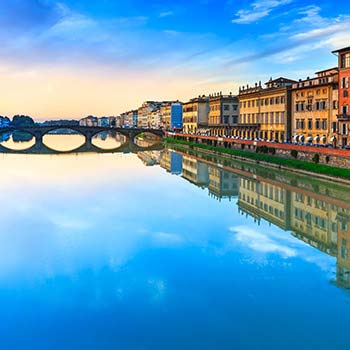Secrets, Signs & Symbols in Italian Art: Exercises in Iconography
Undergraduate Research Abroad Program
Florence, Italy
Dates: 8/30/22 - 12/17/22

Secrets, Signs & Symbols in Italian Art: Exercises in Iconography
OVERVIEW
CEA CAPA Partner Institution: CEA CAPA Florence Center
Location: Florence, Italy
Primary Subject Area: Art History
Instruction in: English
Course Code: ARH335FLR
Transcript Source: University of New Haven
Course Details: Level 300
Recommended Semester Credits: 3
Contact Hours: 45
Prerequisites: None
Additional Fee: $105.00
Additional Fee Description:This course requires payment of an additional fee to cover active learning components that are above and beyond typical course costs, such as site visits, entrance fees and other expenses.
DESCRIPTION
It is easy to admire the beauty of great works of art, yet without certain interpretive skills, the modern viewer may not understand their precise meanings as they are often disguised in symbols. Learning the 'secrets, signs, and symbols' of art provides the key to artistic interpretation. The Italian Renaissance is especially rich in meaningful imagery - firmly rooted in both classical and Christian heritage - this symbolic language can sometimes seem a mysterious code to modern eyes. This course provides an examination of the signs and symbols that can help us to decipher artwork produced in Florence during the Renaissance (late-14th century until the mid-16th century). Our review of signs and symbols will be driven by the critical analysis of key art historians such as Aby Warburg, Erwin Panofsky, and Michael Baxandall.
The course will begin with an introduction to iconographic methodology and the meaning of recurrent symbols, including attributes, personifications, and allegories. Our investigation will then turn to specific themes and concepts through an analysis of images, stories, allegories, motifs & context, creation, Mary & Jesus, saints & symbols, and mythology & gods.
Lessons and assignments will draw upon a selection of Italian art that best lends itself to specific methodological approaches and key concerns (political, historical/contextual, gendered, etc.). By the end of this course, students will have developed the skills to apply the most significant approaches within art history to critically analyze an Italian Renaissance artwork. Ultimately this will enable students to interpret the symbolic messaging as it was meant to be "read" by the artists' contemporaries.
The course will begin with an introduction to iconographic methodology and the meaning of recurrent symbols, including attributes, personifications, and allegories. Our investigation will then turn to specific themes and concepts through an analysis of images, stories, allegories, motifs & context, creation, Mary & Jesus, saints & symbols, and mythology & gods.
Lessons and assignments will draw upon a selection of Italian art that best lends itself to specific methodological approaches and key concerns (political, historical/contextual, gendered, etc.). By the end of this course, students will have developed the skills to apply the most significant approaches within art history to critically analyze an Italian Renaissance artwork. Ultimately this will enable students to interpret the symbolic messaging as it was meant to be "read" by the artists' contemporaries.







